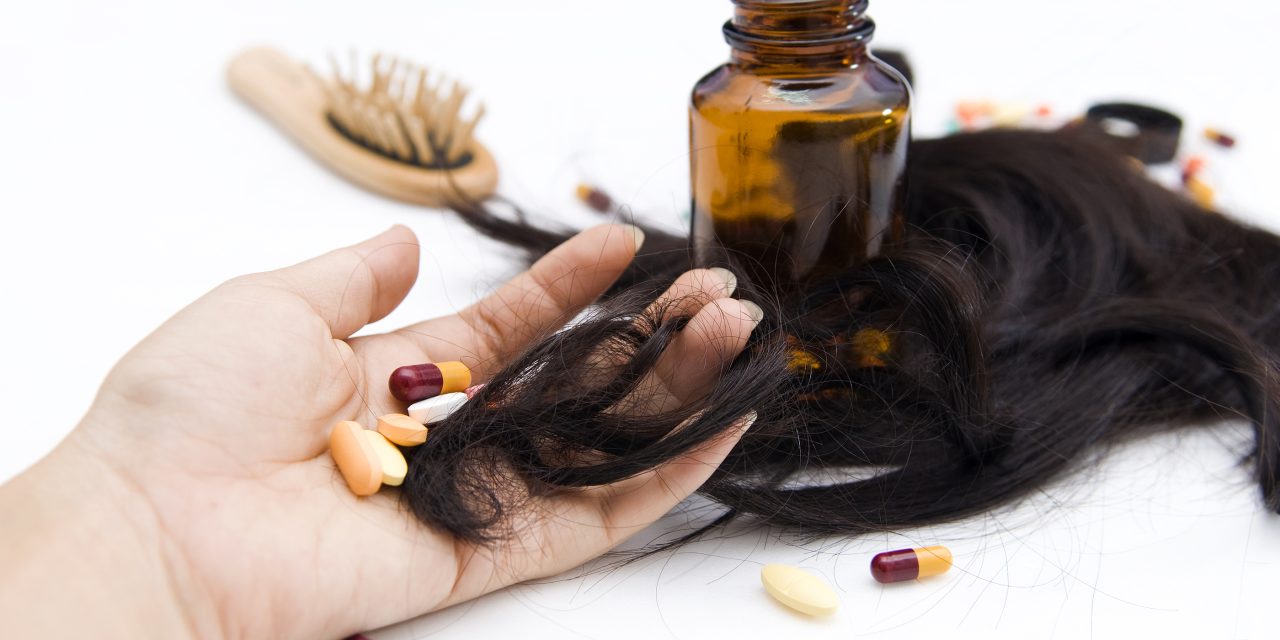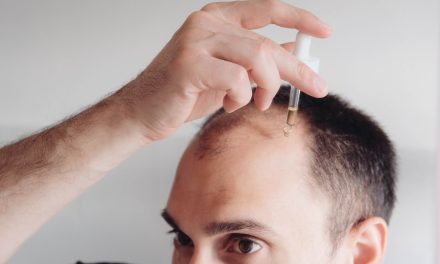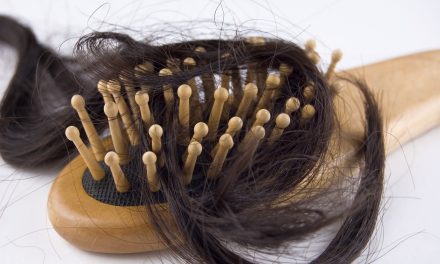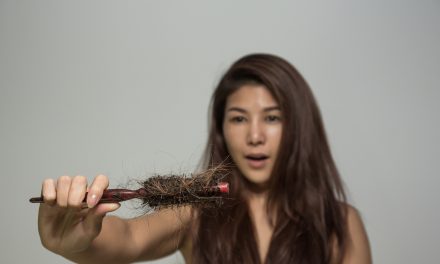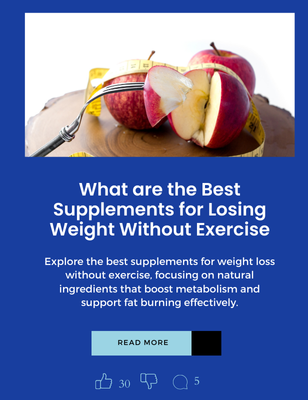Understanding the causes of hair loss is essential to determining the right treatment options. The increasing market for hair loss supplements has led to a broad range of products, each claiming to help restore hair growth. It’s crucial to evaluate these supplements’ safety, efficacy, and possible side effects when considering their use.
Key Takeaways
- Hair loss can be attributed to various factors, making it vital to understand the causes before choosing a treatment.
- The market offers a variety of hair loss supplements, necessitating an evaluation of their safety and efficacy.
- It’s important to consider possible side effects and consult a dermatologist when seeking hair loss solutions.
Understanding Hair Loss
Causes of Hair Thinning
Hair loss is a common issue that affects both men and women of all ages. There are numerous factors that can lead to hair thinning, including genetics, hormonal changes, nutrition deficiencies, stress, and certain medical conditions. By understanding these factors, you can make informed decisions about how to address your hair loss situation.
Hair Growth Cycle
The hair growth cycle is a vital aspect of hair health. It consists of three primary phases:
- Anagen: The active growth stage, where hair length increases over time.
- Catagen: The transitional stage, when hair growth slows down and the hair follicle begins to shrink.
- Telogen: The resting stage, where the hair follicle is inactive and may eventually shed the hair strand.
Each hair strand on the scalp is at a different phase in the hair growth cycle. However, certain factors can disrupt this cycle, leading to hair thinning or loss.
Types of Alopecia
There are several types of alopecia, each with its unique characteristics. Here are three common forms:
- Androgenetic Alopecia: Known as male or female pattern hair loss, this type of alopecia affects both sexes. It is primarily characterized by hair thinning on the top and front of the scalp and is often attributed to genetic predisposition and hormonal changes.
- Alopecia Areata: This is an autoimmune disorder that causes hair loss in small, round patches across the scalp. The cause of alopecia areata is still unknown, although it is linked to genetic factors and immune system issues.
- Telogen Effluvium: A temporary form of hair loss that occurs when stress, illness, or other factors push a significant portion of hair follicles into the telogen (resting) phase. This can result in sudden, diffuse hair shedding.
In conclusion, understanding the different causes of hair thinning, the hair growth cycle, and the types of alopecia is essential in addressing hair loss concerns effectively. When seeking treatment, it is important to consult a knowledgeable healthcare professional for personalized advice and guidance.
Diet and Hair Health
Nutritional Deficiencies and Hair Loss
Nutritional deficiencies can play a significant role in hair loss. A common cause of hair shedding is an iron deficiency, as this element is crucial for hair growth and strength. Consuming foods rich in iron – such as leafy greens, legumes, and meat – can help to reduce hair loss due to insufficient iron in one’s diet.
Moreover, protein is a major component of hair structure, as it is made up of a protein called keratin. A lack of protein intake can weaken hair, making it more prone to breakage and hair loss. Including protein-rich foods like poultry, fish, and dairy products can promote hair health.
Furthermore, certain vitamins and minerals play essential roles in maintaining healthy hair. For instance, biotin – a B-vitamin – is known for its role in hair growth and thickness. Zinc, meanwhile, can help to regulate the hair growth cycle, and vitamin D is also considered vital for hair health. Ensuring a balanced diet that includes the necessary nutrients can help to prevent hair loss related to these deficiencies.
The Role of a Balanced Diet in Hair Regrowth
A balanced diet is crucial in maintaining overall health, including hair health. Consuming a variety of foods – including fruits, vegetables, whole grains, and lean proteins – provides essential nutrients that contribute to hair regrowth and strength.
Some key elements of a hair-friendly diet include:
- Fatty acids: Omega-3 and Omega-6 fatty acids are essential for maintaining healthy hair. They can be found in foods such as fish, nuts, and seeds.
- Vitamins: Vitamins A, C, D, and E can all contribute to healthier hair. These can be found in various fruits, vegetables, and fortified foods.
- Minerals: Minerals like zinc, selenium, and copper are vital for maintaining hair health. Foods rich in these minerals include oysters, Brazil nuts, and lentils.
Incorporating these important nutrients into your diet can promote hair regrowth and help prevent further hair loss. It is essential to take a comprehensive approach to your diet, ensuring that you consume the necessary variety of nutrients to maintain healthy hair and overall wellbeing.
Hair Loss Supplements: An Overview
Common Ingredients in Supplements
Hair loss supplements often contain a variety of vitamins and minerals that play a key role in maintaining healthy hair. Some common ingredients include biotin, vitamin D, vitamin A, vitamin E, iron, and zinc. Biotin, also known as vitamin H, is widely recognized for its role in promoting hair growth and preventing hair loss. Likewise, vitamins A, D, and E are essential for maintaining overall hair health and preventing hair loss due to deficiencies.
In addition to these essential vitamins and minerals, many hair loss supplements include a multivitamin component to ensure that the body receives all the necessary nutrients for optimal hair growth. Some supplements specifically formulated for hair loss cater to both men and women, while others are gender-specific.
Here is a brief overview of the common ingredients found in hair loss supplements:
| Ingredient | Key Role in Hair Health |
|---|---|
| Biotin | Hair growth and strength |
| Vitamin D | Hair follicle health |
| Vitamin A | Sebum production |
| Vitamin E | Antioxidant protection |
| Iron | Hair growth and strength |
| Zinc | Hair growth and strength |
The Popularity and Promises of Nutritional Supplements
Hair loss supplements have become increasingly popular as more individuals seek natural and non-invasive solutions to hair loss challenges. Many of these supplements tout promising results, such as increased hair growth, decreased hair shedding, and overall improvement in hair health. The popularity of these products can be attributed to their relatively affordable prices and the availability of various options tailored to individual needs.
While certain nutritional supplements have shown promise in studies for promoting hair growth and treating hair loss, it is essential to exercise caution and consider potential side effects. The Food and Drug Administration (FDA) does not regulate supplements, so it’s crucial to choose a reputable brand and consult with a healthcare professional before adding any new supplements to your daily routine.
Safety and Efficacy of Hair Supplements
Evaluating the Effectiveness
The effectiveness of hair supplements can be evaluated through clinical studies such as randomized, double-blind, placebo-controlled trials. These trials aim to determine the efficacy of various ingredients and formulations in treating hair loss. It’s essential to review the available research to make informed decisions about the use of hair supplements.
A recent review has assessed the clinical efficacy of popular oral hair growth supplement ingredients. This research contributes valuable knowledge on the potential benefits of different ingredients for treating hair loss.
Potential Side Effects and Risks
Like any dietary supplement or medication, hair supplements may have potential side effects and risks. These can vary depending on the ingredients used in the product. Common side effects may include gastrointestinal issues, allergic reactions, or interactions with other medications.
It’s crucial to consult with a healthcare professional before starting any hair loss supplement, especially for individuals with existing health conditions or taking medications. This helps to minimize any potential risks and ensure the supplement is suitable for the individual.
Role of the Food and Drug Administration
Hair supplements fall under the category of dietary supplements, which are regulated by the Food and Drug Administration (FDA). The FDA’s role in overseeing these products is mainly to ensure their safety and proper labeling, rather than guaranteeing their effectiveness.
The FDA does not need to approve dietary supplements before they can be sold on the market. However, supplement manufacturers are responsible for ensuring the safety of their products and maintaining good manufacturing practices. If a hair supplement is found to be unsafe or mislabeled, the FDA can take action, such as issuing warnings, recalls, or product bans.
In conclusion, the safety and effectiveness of hair loss supplements depend on the specific ingredients and formulations. It’s essential to review the available research, understand potential side effects and risks, and consider the FDA’s role in regulating these products. Always consult with a healthcare professional before starting any hair loss supplement regimen.
Medical Treatments vs. Natural Supplements
Pharmaceutical Options for Hair Loss
There are a few well-known medications for treating hair loss, such as minoxidil, finasteride, and spironolactone. Minoxidil, better known by the brand name Rogaine, is an over-the-counter medication that comes in liquid, foam, and shampoo forms. It is most effective when applied to the scalp twice daily. Minoxidil helps with maintaining the hair people still have and can potentially regrow up to about 10% of lost hair.
Another pharmaceutical treatment is finasteride, commonly recognized as Propecia. Finasteride is a prescription medication taken in tablet form. It works by inhibiting the production of the hormone responsible for hair loss, known as dihydrotestosterone (DHT). However, it is important to note that finasteride is typically prescribed to men, as it can cause birth defects in pregnant women.
Spironolactone, also known as Aldactone, is an oral medication that can be prescribed for hair loss in women. It works by reducing the production of androgens, which are hormones that can contribute to hair loss. However, similar to finasteride, spironolactone is not safe for use in pregnant or breastfeeding women.
Comparing with Natural Remedies
Natural supplements have gained popularity as alternatives to pharmaceutical treatments for hair loss. Some popular natural remedies with evidence supporting their effectiveness include saw palmetto and pumpkin seed oil.
Saw palmetto is a botanical extract derived from the Serenoa repens plant, and research suggests it may help slow hair loss by inhibiting 5-alpha-reductase. This is the same enzyme targeted by finasteride, but saw palmetto is available without a prescription and seems to have fewer side effects.
Pumpkin seed oil is another promising natural supplement, which, according to a study published in JAMA Dermatology, may help with hair loss. Rich in zinc and other nutrients, it also appears to have fewer side effects compared to medications.
When comparing pharmaceutical treatments and natural supplements for hair loss, it is essential to consider side effects, efficacy, and personal preferences. While medications like minoxidil, finasteride, and spironolactone have been proven effective in treating hair loss, they may come with more side effects compared to natural remedies like saw palmetto and pumpkin seed oil. Ultimately, the choice between medical treatments and natural supplements will vary depending on individual needs and preferences.
How Hormones Influence Hair Health
Understanding the Role of Testosterone
Hormones have a significant effect on hair health, growth, and structure. Testosterone is one such hormone that plays a crucial role in the hair cycle. This androgen hormone directly affects hair follicles, depending on the hair’s location on the body. For example, testosterone can promote the growth of facial hair but lead to hair thinning on the scalp.
Testosterone is primarily responsible for keeping our hair in the anagen (growing) phase longer. However, when this hormone reacts with the enzyme 5-alpha reductase, it converts into dihydrotestosterone (DHT), which is detrimental to hair health.
DHT and Hair Loss
Dihydrotestosterone (DHT) is a potent byproduct of testosterone that can lead to hair thinning and follicle miniaturization. DHT affects hair growth by binding to hair follicle receptors, leading to the production of thinner, shorter hair. This eventually causes the follicle to shrink, weakening the hair until it falls out.
Factors contributing to DHT production:
- Age
- Genetics
- Hormonal imbalances
Though DHT is a natural hormone, the disruption it causes to hair health can be mitigated. Incorporating a healthy lifestyle, balanced diet, and possibly using hair loss treatments or supplements can contribute to hair health. However, it is essential to consult a healthcare professional before beginning any treatment or supplement regimen.
Consulting a Dermatologist
When to Seek Professional Advice
It is crucial to consult a dermatologist when experiencing hair loss symptoms, as it could be an indication of an underlying medical condition. It is essential to seek professional advice if any of the following symptoms are present:
- Sudden or excessive hair loss
- Patchy or circular bald spots
- Red, scaly patches on the scalp
- Scalp irritation or itchiness
Additionally, consulting a dermatologist is necessary before starting any hair loss supplements to ensure that the chosen treatment is safe and compatible with one’s specific needs.
Treatment Plans and Monitoring Progress
A dermatologist can devise an appropriate treatment plan tailored to the individual’s specific situation, taking into account factors such as the cause of hair loss, the degree of severity, and the presence of any medical conditions. Some possible treatments recommended by a dermatologist include:
- Topical solutions: Applied directly to the scalp, these treatments can slow hair loss and promote regrowth.
- Prescription medications: Oral medications that target hormone levels or reduce inflammation, potentially impacting hair growth.
- Nutritional supplements: Supplements containing essential vitamins, minerals, or other nutrients that may help improve hair health and growth.
A personalized treatment plan will include regular monitoring and follow-up appointments with the dermatologist to track progress, discuss any side effects or scalp irritation, and make adjustments to the treatment plan as needed. Regular visits play a vital role in ensuring the safety and effectiveness of the chosen hair loss treatment.
Additional Hair Regrowth Strategies
In addition to considering hair loss supplements, there are other strategies to help with hair regrowth. This section explores some of these options: topical treatments, serums, surgical options, and non-surgical procedures.
Topical Treatments and Serums
There are various topical treatments and serums available for promoting hair regrowth. One well-known treatment is topical minoxidil, an FDA-approved medication available over the counter. Minoxidil helps thicken hair follicles and promotes hair lengthening when applied to the scalp. It can be found in both liquid and foam forms.
Other options include natural treatments like:
- Aloe vera: Known for its soothing and scalp-stimulating properties.
- Coconut oil: Helps prevent hair breakage and promotes nourishment.
- Rosemary oil: Stimulates blood circulation and promotes hair growth.
Surgical Options and Non-Surgical Procedures
For those in search of more advanced hair regrowth solutions, surgical and non-surgical procedures may be worth considering.
One surgical option is hair transplant surgery. This procedure involves the removal of hair follicles from one area of the head (the donor site) and transplanting them to the area experiencing hair loss (the recipient site). Hair transplant surgery can provide natural-looking and long-lasting results for those with significant hair loss.
Platelet-rich plasma (PRP) injections are a non-surgical treatment option that harnesses the patient’s blood to promote hair growth. The procedure involves taking a sample of the patient’s blood, isolating the platelets, and injecting the platelet-rich plasma into the scalp. PRP injections have shown promising results for stimulating hair regrowth and thickening existing hair.
By exploring these additional hair regrowth strategies, individuals have a variety of options to consider when seeking solutions for hair loss.
The Psychological Impact of Hair Loss
Coping with Hair Thinning
Hair loss is more than just a physical change; it’s an emotional journey that many navigate with trepidation. In a world where societal expectations often revolve around a full head of hair, the emotional toll of hair loss can be profound1. Some common emotional aspects associated with hair thinning are self-consciousness, embarrassment, frustration, and jealousy2.
Various coping strategies can alleviate the emotional distress caused by hair thinning:
- Acceptance: Embrace the situation and acknowledge that hair loss is a natural process many people experience.
- Support: Seek assistance from friends, family, or support groups to share experiences and tips.
- Consultation: Speak to a professional about treatment options or non-invasive solutions like hair fibers, wigs, or hairpieces.
Stress Management and Hair Care
Stress is a significant factor in hair shedding3, with excessive shedding referred to as telogen effluvium. Both emotional (such as a death in the family) and physical stress (like illness, surgery, or hospitalization) can contribute to hair loss.
Here are some stress management techniques to minimize hair shedding:
- Practice relaxation exercises like deep breathing, meditation, or yoga.
- Maintain a healthy diet rich in essential vitamins and minerals.
- Exercise regularly to release endorphins and relieve stress.
- Prioritize sleep and establish a consistent sleep schedule.
- Seek professional help if stress becomes overwhelming.
Proper hair care is crucial to manage stress-related hair shedding. Incorporate the following hair care tips:
- Use gentle, sulfate-free shampoos and conditioners.
- Avoid heat styling and tight hairstyles that can cause hair breakage.
- Apply nourishing hair masks and leave-in treatments to strengthen hair.
- Brush your hair gently with a wide-tooth comb to minimize friction and damage.
Footnotes
Maintaining Healthy Hair
Daily Hair Care Tips
To support healthy hair growth and maintain hair density, it is essential to follow a few daily care tips. First, it is crucial to keep your hair clean and moisturized. Regularly washing with a gentle shampoo and using a conditioner can help prevent product buildup and support hair follicles’ health. Moreover, avoid excessive heat styling and chemical treatments, as they can damage the hair’s natural structure, including collagen, keratin, and protein.
Incorporate a balanced diet that is rich in antioxidants, minerals, and vitamins. Foods high in protein like eggs, fish, and lean meats can provide essential amino acids for keratin production, while antioxidants found in fruits and vegetables can help protect hair follicles from free radicals. Additionally, certain vitamins like B-complex, D, and E, along with minerals such as zinc and iron, can aid in maintaining overall hair health.
Long-Term Hair Health Strategies
Implementing long-term strategies is equally important for sustaining hair health. Among them, ensuring adequate sleep is crucial, as it enables the body to repair and regenerate cells, including those in the hair. Aim for 7-8 hours of sleep per night for optimal benefits.
Another crucial long-term strategy is supporting your hair’s structural proteins, such as collagen and keratin. Consuming foods rich in these nutrients or taking supplements can improve hair density and strengthen hair follicles. Additionally, use products that contain ingredients like argan oil or coconut oil, which help moisturize and nourish the hair.
In conclusion, taking care of your hair on a daily basis and adopting long-term strategies that focus on a balanced diet, adequate sleep, and gentle care practices are essential in maintaining healthy hair growth and supporting hair follicles. By incorporating these tips into your lifestyle, you can promote optimal hair health and potentially reduce hair loss.
Frequently Asked Questions
What are the potential side effects of hair loss supplements?
Hair loss supplements may cause some side effects, such as headaches, scalp irritation, and gastrointestinal issues. However, these side effects typically occur when taken in large doses. Following the recommended dosage and consulting with a healthcare professional before starting any supplement can help minimize potential side effects. Mayo Clinic provides useful information on treating hair loss.
Can taking hair growth vitamins cause any negative side effects?
In general, taking hair growth vitamins in recommended doses is considered safe. However, exceeding the recommended dosage or taking vitamins without a deficiency may lead to negative side effects, such as nausea, stomach pain, and skin rashes. Consult a healthcare professional to determine the appropriate dosage for your needs. Forbes has a list of hair growth vitamins and supplements to consider.
How effective are vitamins and supplements in promoting hair thickness and growth?
Vitamins and supplements can be effective in promoting hair thickness and growth, particularly when addressing specific nutritional deficiencies. Some vitamins, such as biotin, vitamin D, and zinc, are known to support hair growth. However, results may vary depending on individual needs and underlying causes of hair loss. It is important to consult a healthcare professional to identify the root cause of hair loss and develop a personalized approach. Allure offers insights from experts on hair growth supplements.
Is it safe to consume hair loss supplements on a daily basis?
When taken in recommended doses, hair loss supplements are generally safe to consume daily. Always consult a healthcare professional before starting any new supplement to ensure it is appropriate for your needs and will not negatively interact with any medications or other supplements you may be taking.
What vitamin deficiencies are commonly linked to hair loss in women?
Vitamin deficiencies commonly linked to hair loss in women include vitamin D, iron, zinc, and biotin. If you suspect a deficiency may be contributing to hair loss, it is essential to consult a healthcare professional to accurately diagnose the deficiency and develop a supplementation plan tailored to your needs. Mayo Clinic provides helpful tips for preparing for a hair loss appointment with your doctor.
Are there specific risks associated with using Nutrafol for hair loss?
Nutrafol is a popular hair loss supplement that contains a blend of natural ingredients. While it is considered generally safe for most individuals, it may cause side effects such as headaches, digestive issues, or skin irritation in some cases. As with any supplement, consult a healthcare professional before starting Nutrafol to ensure it is appropriate for your needs and to determine the correct dosage.

